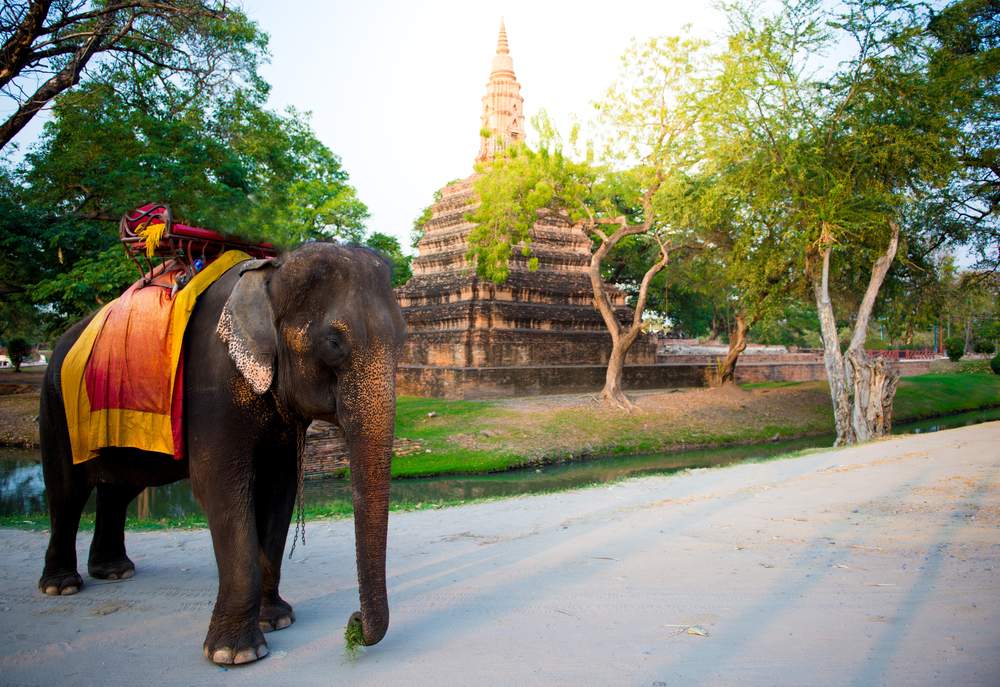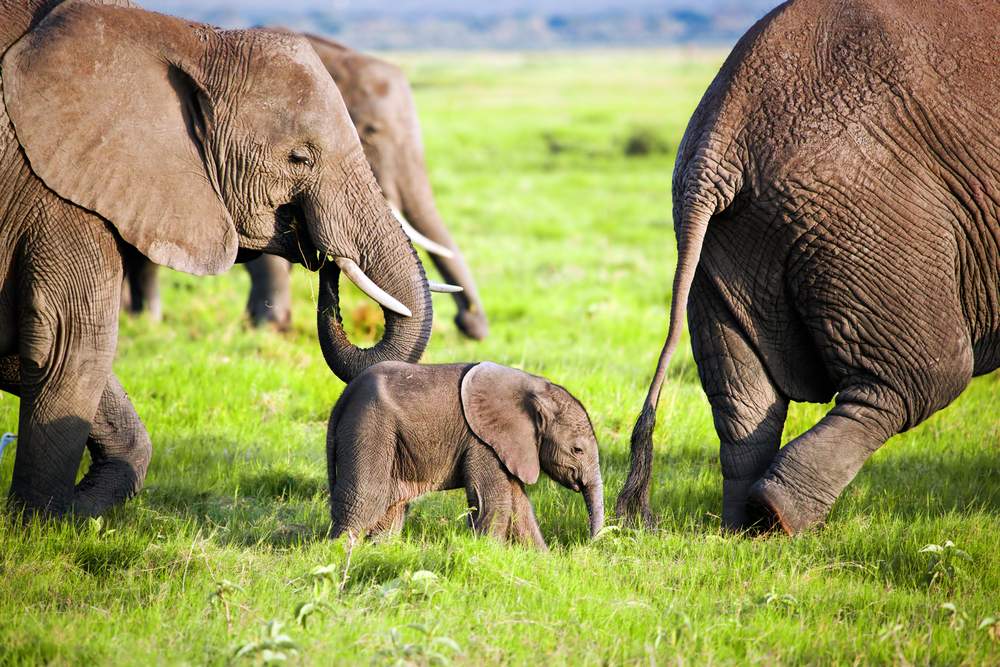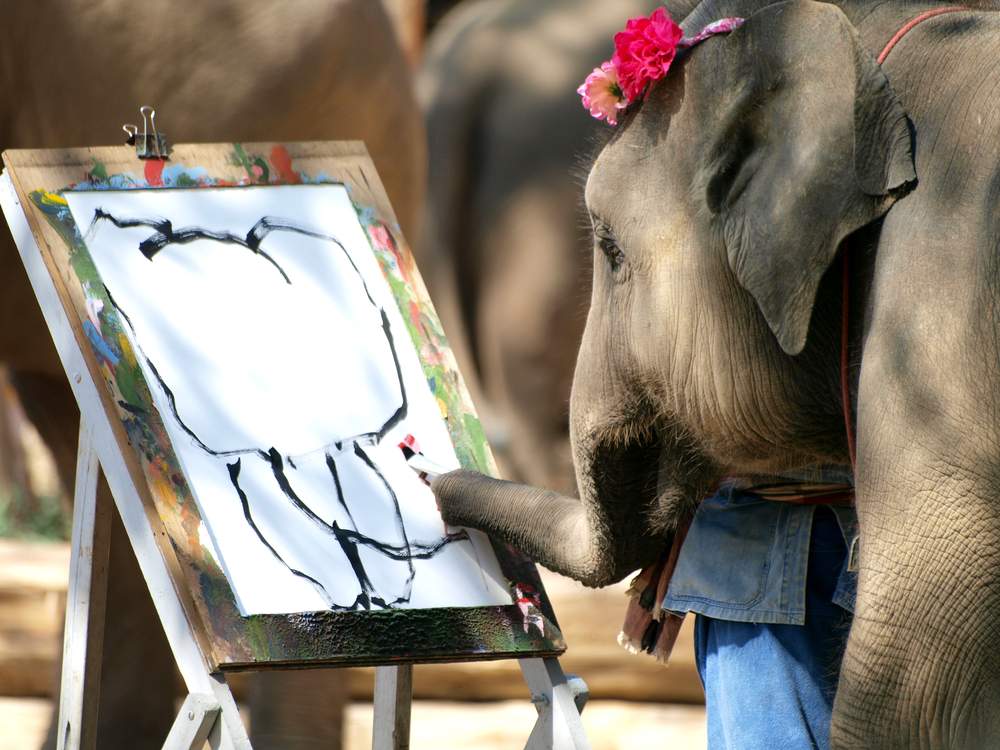You’ve seen the photos; travellers perched atop on elephant, trekking through a lush jungle somewhere in Northern
Thailand; or perhaps you’ve been wandering down the street in Chiang Mai or Bangkok and spotted a local with a baby elephant, if you buy some bananas he will let you take a photo. Surely there is nothing wrong or unethical with riding an elephant or buying bananas so you can take a photo, right?
Why it’s wrong

Just because elephants have been ridden for hundreds of years, does not mean that it’s an okay practice, in fact there is a side to elephant tourism in Thailand that many travellers, and tour agencies, do not know about. The practice of breaking an elephant’s spirit, making them submissive to their mahouts, is heart-breaking.
The practice involves separating baby elephants from their mothers, being placed in a cage or holding pen, starved, and beaten by locals until the baby elephant’s spirit is broken, and it no longer needs or recognizes its own mother. Once this has taken place the elephant is more submissive to the demands of their mahout; armed with a bull hook, a wood stick with a metal hook on the end, mahouts will use these on elephants as punishment, sometimes jabbing them in the eye and other sensitive areas of the body.
While most tourists who participate in elephant rides may not see the mahout use the bull hook, it will be placed in his hand, resting on the top of the elephant’s head.
Responsible elephant tourism

Thankfully, in Thailand, the tides are beginning to turn and there is more focus on responsible tourism practices, including the discontinuation of elephant rides. It’s a tough change, especially as many mahouts feel they can make more money by exploiting their elephants, rather than allowing tourists to interact with elephants in a more natural setting;
Lek Chailert from Elephant Nature Park in Northern Thailand has been fighting for elephant rights for over twenty years, and it is through her hard work that other camps are following suit and putting their bull hooks away and removing the saddles from the backs of their elephants.
“It can be hard, as a traveller, to know which elephant experiences are ethical; ask yourself, is this natural behaviour for an elephant?”
Not all Asian elephants are used in tourism, upon having their spirit broken many elephants are placed in logging camps; some are forced to become circus acts, or ‘taught’ to paint.
It can be hard, as a traveller, to know which elephant experiences are ethical; ask yourself, is this natural behaviour for an elephant? Do elephants normally perform circus acts, or paint, or pick up humans and take them wherever they want to go?
How to tell if a place is unethical
- Mahouts carry bull hooks
- The camp offers elephant rides
- The camp has a ‘circus’ or elephant painting
- Elephants have chains around their ankles and neck
Why are unethical places cheaper?

In most camps elephant care is not a top priority, and in some cases the elephants are not properly cared for. They are placed in cramped living spaces, and chained whenever they are not working; medical care in these camps are often non-existent.
In camps like Elephant Nature Park the focus is on the elephants, their well being and happiness. Each elephant is cared for and well fed; medical attention is provided to each one – they have their own elephant clinic in the park; during the day the elephants are free to roam wherever they wish, there are no chains or bull hooks; at night they are placed in enclosures that are safe, spacious, and keep family groups together.
“Many mahouts have a strong bond with their elephants, and it shows…”
There is something magical about watching a mahout guide his elephant, without holding a bull hook. At times the elephant will come when they are called, sometimes the mahout will while gently move their head in the direction they are suppose to walk and the elephant obeys and follows. Many mahouts have a strong bond with their elephants, and it shows; a young mahout stops walking to tie his shoelace and his elephant stops to wait for him; another places a red flower on the right ear of his elephant because she has a hole and he wants her to feel like the rest of the elephants.
At Elephant Nature Park there are so many stories about the love of a mahout, and the relationship he has established with his elephant, without having to carry or use a bull hook; these interactions are something visitors see during their day trip visit, and volunteers witness it over and over again when they stay for a week, two weeks, a month, or even longer.
“Supporting ethical elephant camps and sanctuaries is often more expensive, but it’s money well spent “
It’s hard to visit a place like Elephant Nature Park, where elephants, and all animals, are loved and cared for, and then visit a camp that exploits their animals; the difference in the animal’s demeanour is evident. One look at a baby with chains around its ankles and neck will bring tears to your eyes.
Supporting ethical elephant camps and sanctuaries is often more expensive, but it’s money well spent because you’re not lining someone’s pocket with cold hard cash, you are contributing to the love and care of an animal who, after years of oppression and pain, is now free and away from danger. You’re giving these elephants a happy life.


